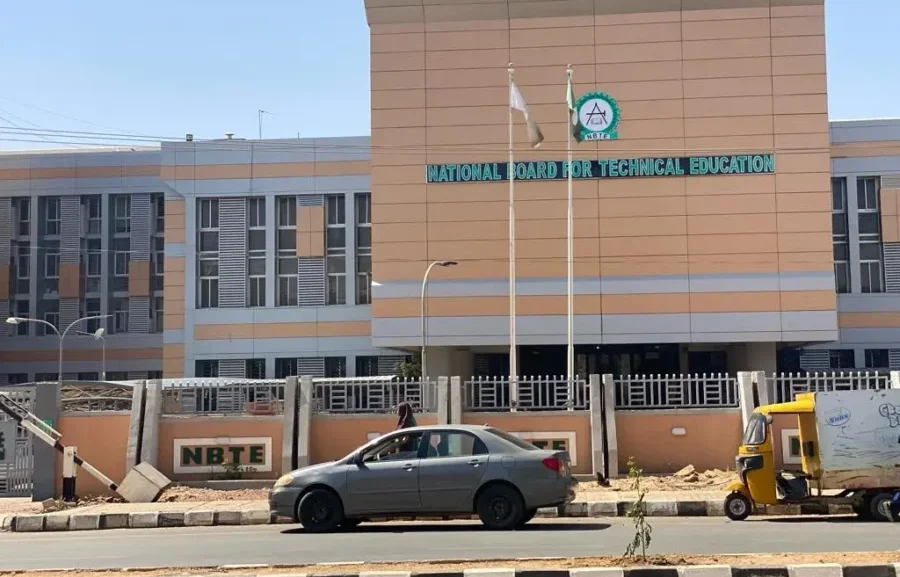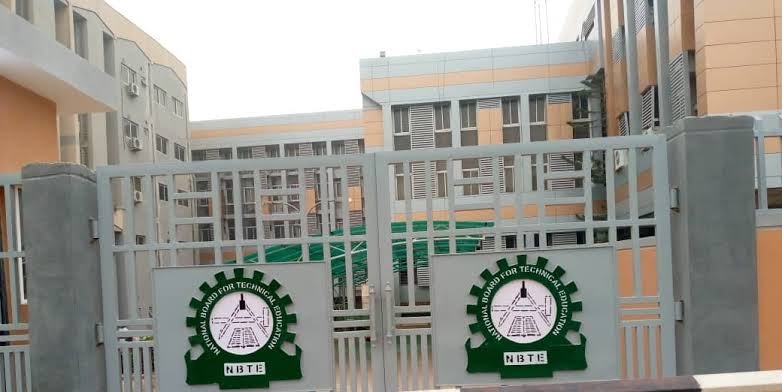In a recent engagement at Kwara State Polytechnic, Bello Abdul-Hakeem—Acting Director of the National Board for Technical Education (NBTE) in the North Central Zone—reiterated that technical education must be central to Nigeria’s development agenda. According to him, insufficient funding of polytechnics has gravely undermined the nation’s capacity to produce the technical manpower needed for industrialisation and sustained economic growth.
During his courtesy visit, Bello underscored that improving access to vocational and technical training is not merely a policy choice but a strategic necessity to tackle Nigeria’s high unemployment rate. He affirmed NBTE’s renewed resolve to prioritise skills transfer initiatives and accreditation efforts that will align education with real-world labour needs.

Table of Contents
Praise for KwaraPoly’s Accreditations and Calls for Innovation
While at the institution, Bello commended Kwara State Polytechnic (KwaraPoly) for maintaining robust academic programmes, all of which, he noted, enjoy full accreditation. He encouraged the leadership to sustain this level of quality, while also pressing for more innovation in curricula and teaching methodology to stay ahead of evolving industry demands.
In response, the Rector, Abdul Jimoh Mohammed, expressed gratitude for the visit and reiterated the institution’s commitment to NBTE regulations. He added that the Polytechnic aims to award dual credentials—namely a National Diploma (ND) or Higher National Diploma (HND), alongside the National Skills Qualification (NSQ) certificate—to better position graduates in a competitive job market.
The Rector also appealed to the NBTE zonal office for assistance in accrediting recently launched programmes, signalling KwaraPoly’s ambition to expand and diversify its offerings in applied sciences, engineering, and technical trades.

The Funding Gap and Its Consequences
Central to the NBTE’s concerns is the chronic underfunding of state polytechnics, which has eroded infrastructure, equipment availability, and the quality of instruction. Bello pointed out that this resource deficit is among the principal reasons Nigeria faces a shortage of skilled technical workers—a gap that hinders the country’s ability to attract capital investment in industry and manufacturing.
Without adequate funding, many polytechnics struggle to maintain laboratories, workshops, and industrial equipment. In many cases, obsolete tools and inadequate facilities impede students’ ability to acquire practical, hands-on experience.
By contrast, well-resourced technical institutions can produce graduates who are immediately employable—or able to engage in entrepreneurial ventures—thus combating youth unemployment and fueling national growth.
Bridging Education and Labour Market Demands
For technical education to truly drive national development, there must be synergy between educational institutions, industry, and government. The NBTE’s role is pivotal: in setting standards, accrediting programmes, and guiding curriculum reforms that reflect contemporary industrial needs.
However, the success of this vision also depends on:
- Sustainable funding models: The federal and state governments must prioritise capital and recurrent funding for technical institutions, enabling them to maintain and upgrade facilities, hire qualified instructors, and support research and innovation.
- Strong monitoring and evaluation: Regular audits, performance measurements, and external assessments will help ensure technical colleges remain accountable and responsive to labour market trends.
- Industry partnerships: Collaboration with private sector firms is vital for curriculum development, internships, apprenticeship schemes, and technology transfer. These partnerships help ensure that training is relevant, not theoretical.
- Awareness and advocacy: The public and students must see technical education not as a fallback route but as a first-choice pathway to professional and economic opportunity.

At KwaraPoly, the dual-certification strategy (ND/HND + NSQ) illustrates exactly this kind of alignment—offering graduates both academic legitimacy and demonstrable skills proficiency. If more institutions adopt similar models, Nigeria may steadily close its technical skills gap and unleash a generation of innovative, employable youths.
In conclusion, Bello’s visit underscores that technical education is not peripheral—it is foundational to Nigeria’s aspirations for industrialisation, job creation, and sustainable development. The message is clear: without bold investment, policy coherence, and effective regulatory support, the country risks falling further behind in the global knowledge economy.
Join Our Social Media Channels:
WhatsApp: NaijaEyes
Facebook: NaijaEyes
Twitter: NaijaEyes
Instagram: NaijaEyes
TikTok: NaijaEyes





